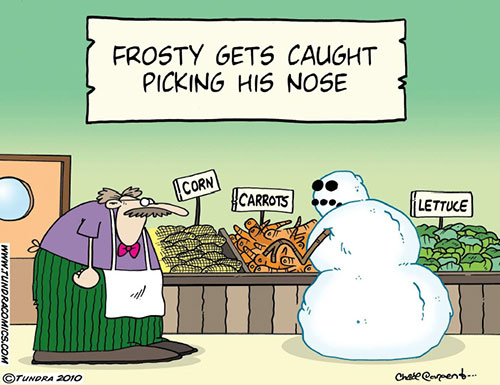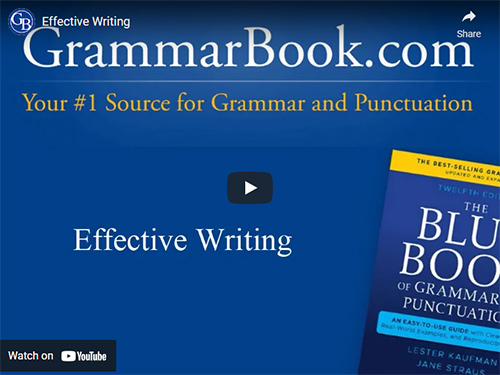|
Predicate Nouns: Usage and Examples
|
|
Michelangelo was a painter.
Mr. Yao is a mathematician.
Her favorite gifts are roses. |
In each of these sentences, we have a subject, a verb (more specifically, a linking verb), and another noun. The second noun in each sentence renames or identifies the subject noun (Michelangelo = painter, Mr. Yao = mathematician, gifts = roses).
Because they mirror their subject nouns, these second nouns are known as predicate nouns (also referred to as subject complements and predicate nominatives).
A predicate noun will always follow a linking verb such as be, become, remain, seem, and appear in relation to the sentence subject. A predicate noun follows only a linking verb because it conveys a state of being as opposed to an action.
State of being: Cardinals are birds.
Action: Cardinals eat seeds, grains, greens, fruits, and berries.
State of being: Roger seems a fine fellow.
Action: Roger shows kindness and courtesy to all. |
You'll note that action verbs often take direct objects (e.g., seeds, grains, greens; kindness, courtesy); state-of-being (linking) verbs do not take direct objects.
Predicate Nouns: Noun Phrases
Predicate nouns can also be complete noun phrases.
Examples
Michelangelo was a very talented painter.
Mr. Yao is an MIT-educated mathematician.
Her favorite gifts are long-stemmed red roses. |
Some noun phrases serving as predicate nouns might contain dependent clauses or other modifying phrases as well.
Examples
Michelangelo was a painter who painted the ceiling of the Sistine Chapel.
Mr. Yao is a mathematician who studied at MIT.
Her favorite gifts are long-stemmed red roses picked from Mrs. Longhorn's garden. |
Predicate Nouns: Gerunds and Infinitives
Predicate nouns can be gerunds and infinitives as well, including gerund and infinitive phrases.
Examples: Gerunds and Gerund Phrases
Michelangelo's passion was painting.
Mr. Yao's favorite pursuit is working with numbers.
What makes her happy is receiving long-stemmed red roses. |
Examples: Infinitives and Infinitive Phrases
Michelangelo's passion was to paint.
Mr. Yao's preference is to work with numbers.
True joy for her is to receive long-stemmed red roses. |
Predicate Nouns: Clauses
We've pointed out that a predicate noun phrase can include a dependent clause. A dependent clause alone also can function as a predicate noun.
Examples
Michelangelo's painting is what makes people want to look up in the chapel.
Working with numbers still seems what Mr. Yao likes to do most.
True joy for her becomes how long-stemmed red roses can fill her heart with love. |
Predicate Nouns: Different from Pronouns and Adjectives
Not all words that follow linking verbs are predicate nouns. Predicate descriptors of sentence subjects also can be pronouns and adjectives.
Examples: Predicate Pronouns
The person who painted the ceiling was he.
The students who learn a lot from Mr. Yao are we.
The person who most loves to receive roses is she. |
Examples: Predicate Adjectives
With Michelangelo's painting, the ceiling became beautiful.
Mr. Yao's teaching is thorough.
Her long-stemmed roses are red. |
Simply remember that predicate nouns are nouns in any format (e.g., word, phrase, clause) that rename or identify the sentence subject, and you're well on your way to mastery of this component of grammar.
Related Topics
Types of Nouns
Predicating Our Knowledge of Predicates
|
View and comment on this
article on our website.
|
|
Happy Holidays
All of us at GrammarBook.com wish all of you and your families a very happy holiday season.
We will take a three-week break before resuming our weekly e-newsletters on January 11, 2023, with a 2022 Year-in-Review Quiz. Once again, we sincerely hope you have learned from and enjoyed our grammar tips this past year. We have certainly enjoyed bringing them to you.
|
Pop Quiz
Identify any predicate nouns in the following sentences.
1. The day is bright even though clouds are present.
2. Jannina will become the lead singer after Krysta leaves the band.
3. My primary interest is how the economy will respond to the trade agreement.
4. Our new neighbor will be he, and he is a very pleasant person.
5. My daily routine should be drinking more water than soda.
|
 |
The Blue Book of Grammar and Punctuation
by Lester Kaufman and Jane Straus |
The Authority on English Grammar! Twelfth Edition Now Available
An indispensable tool for busy professionals, teachers, students, homeschool families, editors, writers, and proofreaders.
Available in print AND as an e-Book! Over 2,000 copies are purchased every month!
To order the book, simply click the link to order the book from the GrammarBook.com website.
|
Free BONUS Quiz for You!
[[firstname]], because you are a subscriber to the newsletter, you get access to one of the Subscribers-Only Quizzes. Click here to take a To vs. Too vs. Two Quiz and get your scores and explanations instantly!
We will be adding many more quizzes this year to our already substantial list of them. If you have suggestions for topics we have not yet covered, please send us a message at help@grammarbook.com.
|
Hundreds of Additional Quizzes
at Your Fingertips
Subscribe now to receive hundreds of additional English usage quizzes not found anywhere else!
Teachers and Employers
Save hours of valuable time! You may assign quizzes to your students and employees and have their scores tallied, organized, and reported to you! Let GrammarBook.com take the hassle out of teaching English!
"Fun to test my skills."
"The explanations really help ... thanks!"
"I can select the quizzes to assign to my students, and then the results are reported to me automatically!"
If you think you have found an error in a quiz, please email us at help@grammarbook.com
|
Wordplay

Pop Quiz Answers
1. The day is bright even though clouds are present. no predicate nouns
2. Jannina will become the lead singer after Krysta leaves the band.
3. My primary interest is how the economy will respond to the trade agreement.
4. Our new neighbor will be he, and he is a very pleasant person.
5. My daily routine should be drinking more water than soda.
|
 |
English In A Snap:
68 One-Minute English Usage Videos FREE |
Learn all about who and whom, affect and effect, subjects and verbs, adjectives and adverbs, commas, semicolons, quotation marks, and much more by just sitting back and enjoying these easy-to-follow lessons. Share them with your colleagues (and boss), children, teachers, and friends as well! Click here to watch.
|
|





